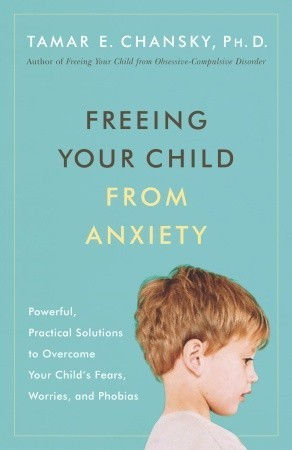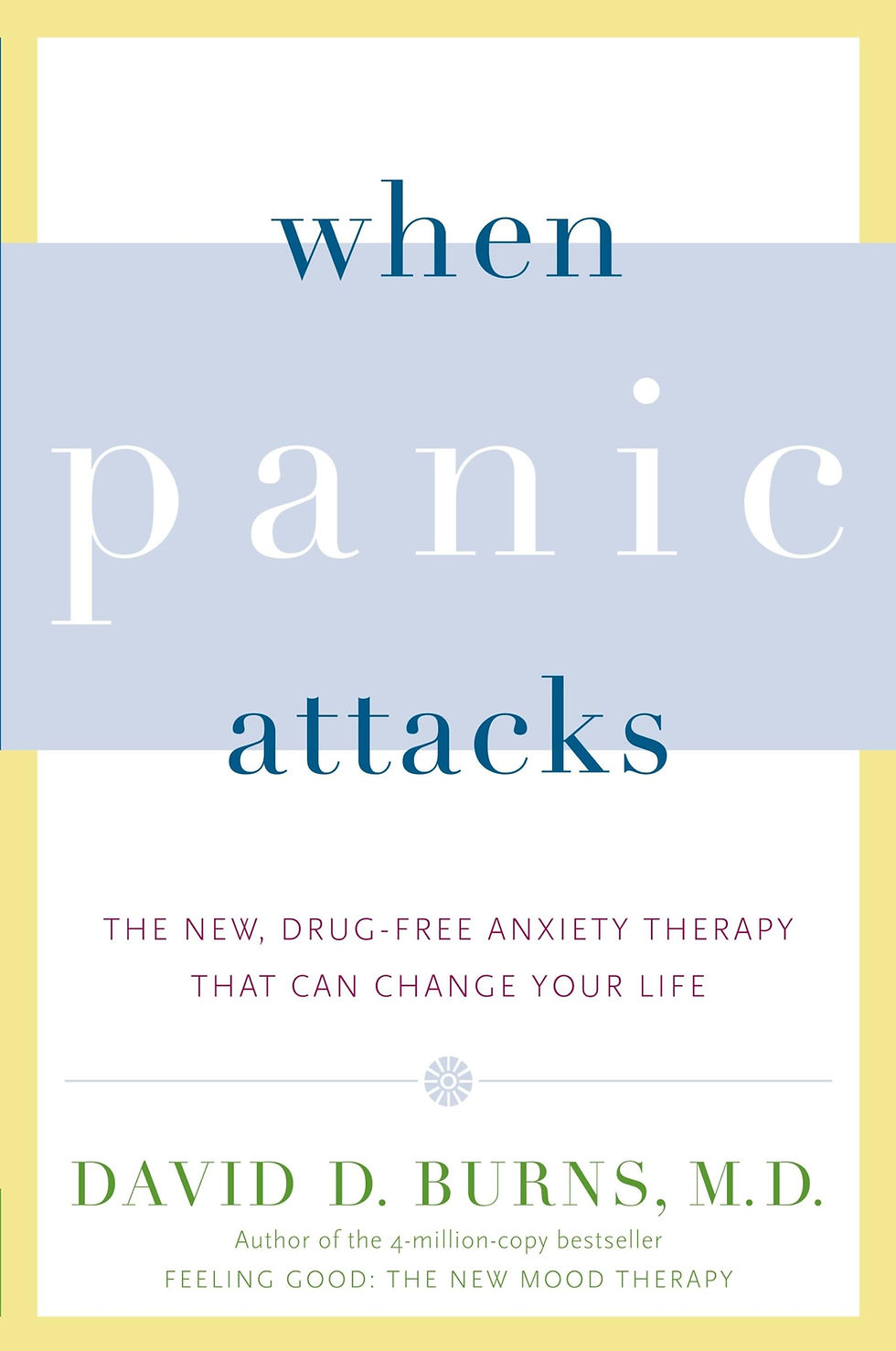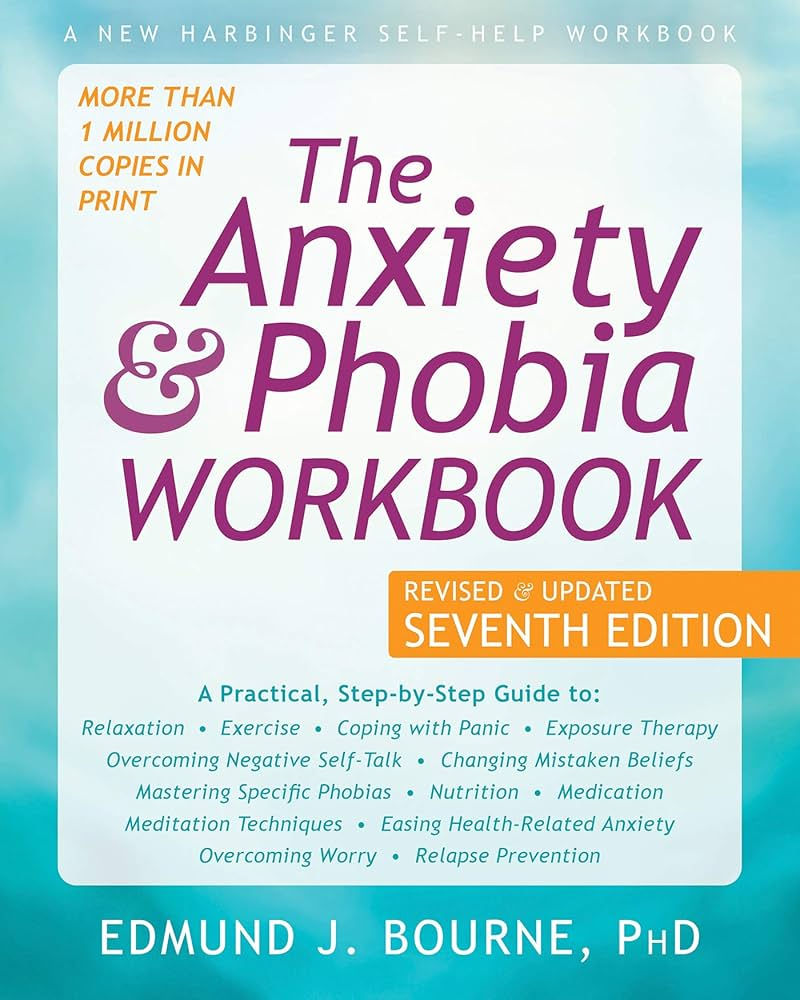Ways to Manage Anxiety
- Scott Smith

- Nov 1, 2024
- 3 min read
Updated: Aug 16, 2025
Anxiety is a symptom, not an illness. It's what we call a "non-specific" symptom, like fever or headache. (It's "non-specific" because it could be caused by any number of things.) Anxiety can be uncomfortable and debilitating, and we naturally want to alleviate it… But we also need to understand why we’re experiencing it in the first place. If you had a persistent fever, you wouldn’t just keep on taking aspirin day after day for the rest of your life, would you? You’d want to find out why your body temperature was so high - and get some relief.
Nowadays, the most common approach to treating anxiety, phobia, panic and other symptoms is called Exposure and Response Prevention (ERP). ERP is an offshoot of Cognitive Behavior Therapy (CBT), but the basic concept has been around forever: When you avoid things that frighten you, the fear doesn’t go away - it gets worse.
The only way to conquer your anxiety is to face it. ERP aims to help you face your fears in a very controlled, deliberate way - step by step, bit by bit, so that you are never overwhelmed. When you practice ERP, it’s almost like vaccinating yourself against a disease by exposing yourself to a little bit of it, experiencing some light symptoms, and thus developing an immunity to it.
ERP is a great technique, and all of the books I recommend here use it. But keep in mind that before we try to eradicate our anxiety, we need to understand it. Understanding why you feel so anxious can help you understand yourself better, and help you take better care of yourself in the future when it comes to relationships, jobs, and other dimensions of your life. Unfortunately, no self-help book can tell you about yourself. Anyway, here are four popular books that I can recommend:

This is a very helpful book that teaches parents how to coach their anxious kids through the Exposure and Response Prevention process. Chansky is a clear writer who has penned other helpful titles such as Freeing Yourself From Anxiety and Freeing Your Child From OCD. Here's a short video she made about managing anxiety: https://www.youtube.com/watch?v=OPiUDi0gvRc&ab_channel=IndependenceBlueCross

David Burns is a psychiatrist and long-time professor at Stanford University. He’s not the inventor of CBT, but he is probably today’s best-known CBT practitioner. His self-help books are simple, straightforward guides to doing CBT on yourself. (I’d also recommend his Feeling Good - The New Mood Therapy.) He also makes videos like this one: https://www.youtube.com/watch?v=N4Pq0ozKeLc&ab_channel=PESIInc

Edmund Bourne is a psychologist who specializes in the treatment of anxiety disorders. He has written a number of popular self-help books on anxiety, and they are all similar to this one in that they include all sorts of exercises, worksheets, questionnaires and other specific tasks you can do in order to fight back against your own anxiety. Indeed, this book’s task-oriented approach is probably why it is so often recommended by therapists.

This is probably my favorite self-help book (and I am not really a fan of most self-help books). Its premise is one that I wholeheartedly endorse: we need to become more aware of and more comfortable with our own thoughts and feelings. Instead of offering strategies to fight anxiety, the author invites you to do some exercises that make you more aware of your painful feelings. The only real way out, it seems, is through.🙂 Here's a video of him talking about his book: https://www.youtube.com/watch?v=N6hY9K-miXY&ab_channel=RonaldJFrederick%2CPhD
One final thought: all treatment of anxiety is aimed at helping you learn to regulate your own emotions. Regulating emotions doesn’t mean suppressing emotions or controlling emotions; it means recognizing, understanding, and dealing with emotions. If you were afraid of water, it would probably be better to learn how to swim than to develop strategies to avoid all bodies of water everywhere, right? You might hate it at first, but ultimately you’d feel a whole let better - especially if you had a talented, caring coach who knew when to push you and when to support you.
Self-help books can be helpful, but they have limits, because we humans learn to regulate our feelings via something called “co-regulation.” In other words, we learn about ourselves and our feelings in relationship with others. CBT, ERP and other methods can help us, but usually we need to practice them in the context of a safe, co-regulating relationship with a loved one, friend, therapist. etc.



Comments